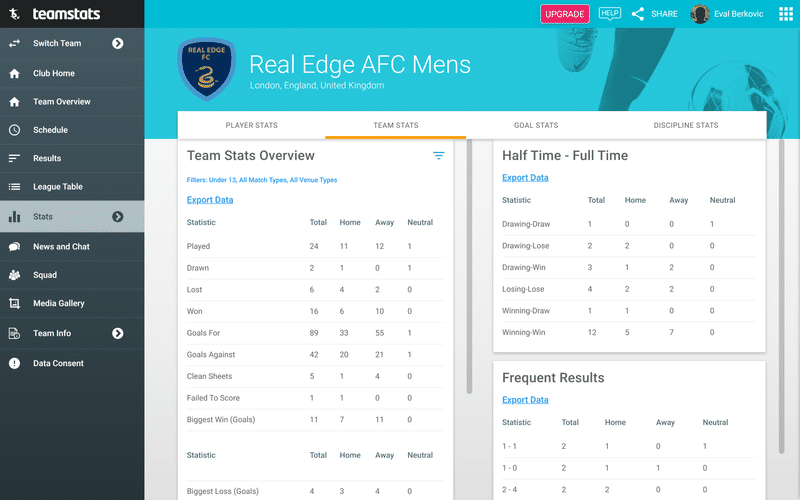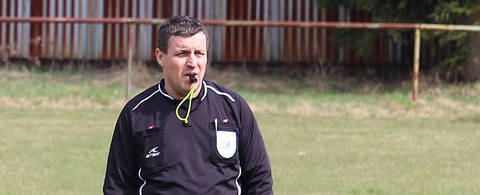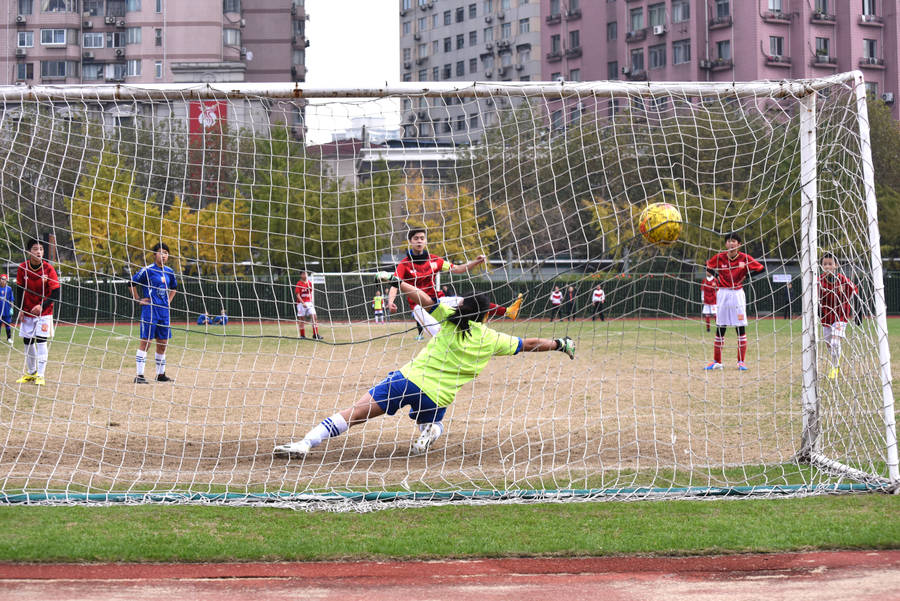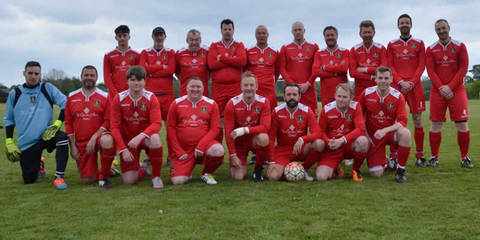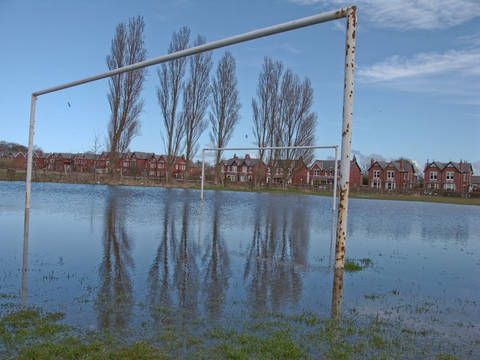Grassroots football is an essential part of the sport, encompassing all levels of non-professional and non-elite football.
It is the foundation of the game, providing a platform for players of all ages and abilities to participate in football.
The term grassroots football refers to any league or activity below the professional ranks, including children's football, schools and youth football, and amateur football.

Grassroots football plays a significant role in encouraging mass participation in the sport and stimulating interest in football. It provides a pathway for young players to develop their skills and progress to higher levels of competition. Grassroots football also promotes social interaction, teamwork, and physical activity, contributing to a healthy lifestyle.
Despite its importance, grassroots football faces many challenges, including funding, facilities, and volunteer recruitment.
The Football Association (FA) has launched an ambitious new strategy for grassroots football in England, providing clear direction for the next four seasons and addressing the short, medium, and long-term challenges to serve and lead the game for the many millions that play nationwide.
Definition of Grassroots Football
Grassroots football is a term used to describe football played at the local level by individuals who are not professional players. This level of football is played by people of all ages and abilities, and is often seen as the lifeblood of the game.
In general, grassroots football is characterised by participation and a love of the game, rather than by the pursuit of success or financial gain. It is played by people who simply enjoy playing football, and who want to be part of a community that shares their passion for the sport.
Grassroots football has a number of core aims, including encouraging mass participation in the sport, stimulating interest in the sport, and providing new opportunities for people of different social backgrounds to play the game. It is seen as an important way of promoting physical fitness and mental well-being, as well as providing opportunities for social interaction and community building.
Grassroots football is played in a variety of settings, including local parks, community centres, and schools. It is often organised by local clubs and organisations, who provide coaching, equipment, and facilities for players. The level of organisation and professionalism can vary widely, but the focus is always on providing a fun and inclusive environment for players to enjoy the game.
History and Evolution of Grassroots Football
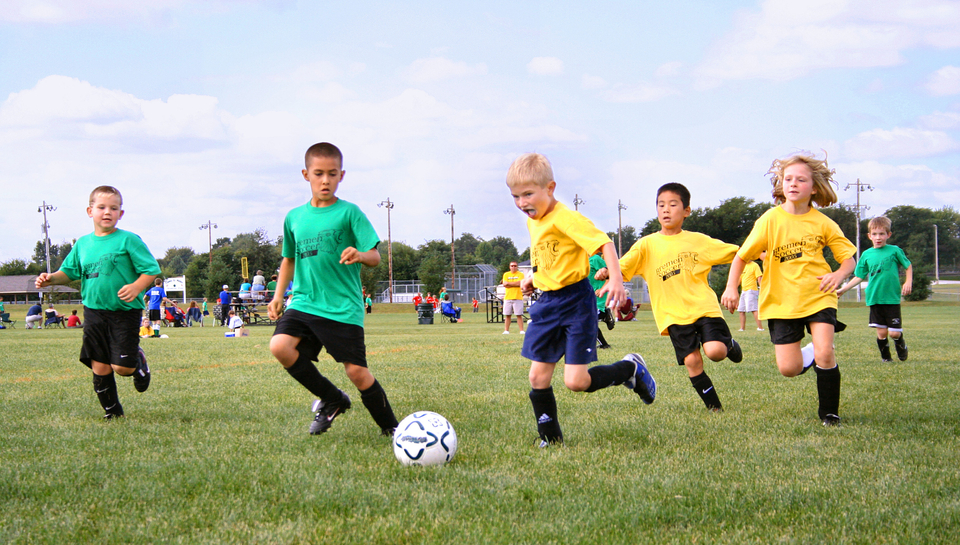
Grassroots football has been an integral part of the sport for over a century. The term "grassroots football" refers to the amateur level of the game, played by people of all ages and abilities in local communities. It is a vital part of the football ecosystem, providing opportunities for people to play the game, develop their skills, and enjoy the sport.
The origins of grassroots football can be traced back to the early 20th century when the game was first organized on a national level. The Football Association (FA) was established in 1863, and by the turn of the century, the sport had become popular across the country. In the early days, football was played by working-class people in their spare time, often on public parks and open spaces.
Over time, the sport became more organized, and local leagues and clubs were established. By the 1920s, there were hundreds of amateur football clubs across the UK, and the game had become an important part of local communities. The FA recognized the importance of grassroots football and established a system of leagues and competitions to support it.
In the post-war period, grassroots football continued to evolve, with new initiatives and programs designed to encourage participation and develop talent. In the 1960s, the FA established a national network of football schools to provide coaching and training for young players. In the 1980s, the introduction of mini-soccer and small-sided games helped to increase participation and make the game more accessible.
Today, grassroots football remains a vital part of the sport, with millions of people playing the game at all levels. It provides opportunities for people of all ages and abilities to participate in the sport, develop their skills, and enjoy the game. The FA continues to support grassroots football through a range of initiatives, including coaching programs, competitions, and funding for local clubs and leagues.
Importance of Grassroots Football
Grassroots football is the foundation of the sport in the United Kingdom and plays a vital role in developing young players and nurturing talent. It provides a platform for players of all ages and abilities to participate in the game, regardless of their background or socioeconomic status.
Grassroots football is essential in promoting physical activity and a healthy lifestyle. It encourages individuals to lead an active lifestyle and helps combat the increasing problem of obesity in the UK. By providing opportunities for people to participate in the sport, grassroots football has the potential to positively impact the health and wellbeing of individuals and communities.
Moreover, grassroots football is an excellent way to develop social skills and promote teamwork. It teaches individuals the importance of working together towards a common goal and helps develop communication, leadership, and problem-solving skills. It also provides an opportunity for individuals to make new friends and develop a sense of community.
In addition to its social and health benefits, grassroots football plays a significant role in promoting the sport and developing future talent. It provides young players with the opportunity to develop their skills and progress through the ranks to professional football. Many of the UK's most successful footballers began their careers in grassroots football, highlighting the importance of the sport in developing talent and promoting the game.
Overall, grassroots football is an essential part of the UK's sporting culture. It provides individuals with the opportunity to participate in the sport, promotes physical activity and a healthy lifestyle, develops social and teamwork skills, and nurtures future talent.
Structure and Organisation

Grassroots football is organised and structured in a way that allows for the participation of players of all ages and abilities. The structure of grassroots football is designed to provide opportunities for everyone to play the game and enjoy the social and health benefits that come with it.
At the core of grassroots football is the local community, which provides the foundation for the organisation and structure of the game. The community is responsible for creating and maintaining the infrastructure that supports the game, such as pitches, changing rooms and equipment.
The structure of grassroots football is hierarchical, with local clubs forming the basis of the system. These clubs are typically run by volunteers who organise matches, training sessions and other events. They also manage the finances of the club, ensuring that it remains financially sustainable.
At the next level of the hierarchy are the local football associations. These associations are responsible for overseeing the development of the game at the local level, providing support and guidance to the clubs in their area. They also organise competitions and leagues, ensuring that players have opportunities to play against other teams.
At the national level, the Football Association (FA) is responsible for the overall development and governance of the game. The FA provides guidance and support to local football associations, ensuring that the game is being developed in a consistent and sustainable way across the country.
Overall, the structure and organisation of grassroots football is designed to provide opportunities for everyone to play the game, regardless of their age, ability or background. The system is built on the contributions of volunteers who give their time and energy to ensure that the game remains a vital part of local communities across the country.
Funding and Support

Grassroots football relies heavily on funding and support from various sources. This section will discuss the different types of funding and support available.
Local Sponsorships
One of the most common ways to fund grassroots football is through local sponsorships. Local businesses can sponsor teams, leagues or even entire clubs. In return, they receive advertising and exposure to the local community. This can be a win-win situation for both the club and the sponsor. It is important to establish clear terms and conditions for the sponsorship agreement to avoid any misunderstandings.
Government Grants
Government grants are another source of funding for grassroots football. These grants can come from local councils, the Football Foundation or other sports-related organisations. They can be used to fund equipment, facilities, coaching and other essential aspects of grassroots football. However, the application process can be time-consuming and competitive. It is important to ensure that the grant application is well-written and meets all the necessary criteria.
Community Fundraising
Community fundraising is another way to support grassroots football. This can include events such as charity matches, sponsored runs or auctions. It is important to involve the local community in these events to maximise their impact. This can also be a great way to raise awareness of the club and attract new members.
In conclusion, funding and support are essential for the success of grassroots football. Local sponsorships, government grants and community fundraising are just some of the ways that clubs can secure the necessary resources. It is important to explore all the available options and to establish clear terms and conditions for any agreements.
Development Programmes and Initiatives
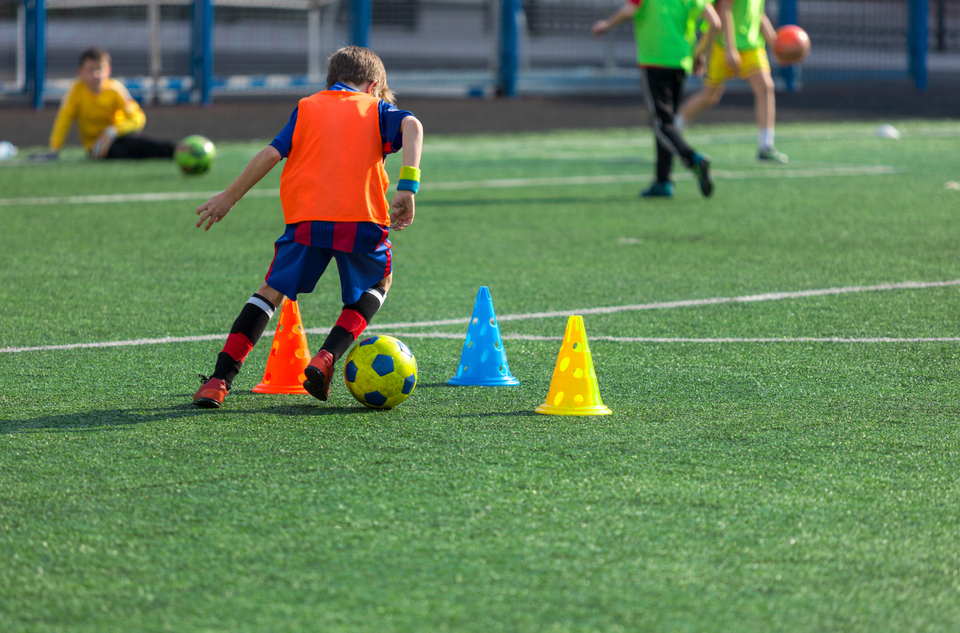
Grassroots football is a vital part of the sport, and various development programmes and initiatives are in place to ensure that it continues to grow and thrive. These programmes are aimed at providing support and resources to clubs, coaches, and players at the grassroots level.
One such initiative is the FA's grassroots football strategy for 2020-2024. This long-term strategy aims to provide a clear and consistent approach to grassroots football, with a focus on increasing participation, improving the quality of coaching, and creating a safe and enjoyable environment for all involved.
Through the FA's "Love Football. Protect The Game" initiative, new policies, procedures, and regulations have been introduced to help address issues such as safeguarding and player welfare. These measures are designed to ensure that grassroots football is a safe and enjoyable experience for all involved.
UEFA is also committed to developing grassroots football across Europe. The Football in Schools (FiS) initiative, funded by the UEFA HatTrick assistance programme, has been launched to improve school football. The initiative commits €11 million over the next four years to improving school football, and is aimed at increasing participation and improving the quality of coaching.
In addition to these initiatives, various development programmes are in place to support grassroots football. These include exchange programmes, development tournaments, and performance analysis. These programmes provide opportunities for players and coaches to develop their skills and gain valuable experience.
Overall, these development programmes and initiatives play a crucial role in the growth and development of grassroots football. By providing support and resources to clubs, coaches, and players, they help to ensure that grassroots football continues to thrive, providing a safe and enjoyable experience for all involved.
Challenges Facing Grassroots Football

Grassroots football faces several challenges that hinder its growth and development. These challenges include:
Facilities and Equipment
Grassroots football often lacks proper facilities and equipment, which makes it difficult for players to train and play effectively. Many grassroots football clubs struggle to maintain their pitches and provide adequate changing rooms and toilets for players. Furthermore, the cost of equipment such as footballs, goalposts, and nets can be prohibitive for many clubs, especially those in low-income areas.
Coaching and Training
Grassroots football often suffers from a lack of qualified coaches and trainers. Many coaches are volunteers who may not have the necessary skills and experience to train players effectively. This can lead to poor training methods and a lack of progress for players. Additionally, many clubs struggle to attract and retain coaches due to the demands of the role and the lack of financial incentives.
Player Retention and Growth
Grassroots football clubs often struggle to retain players and attract new ones. This can be due to a lack of investment in the club, poor facilities, and a lack of quality coaching. Additionally, many players drop out of grassroots football due to the demands of school or work, or because they do not see a clear pathway to professional football.
In conclusion, grassroots football faces several challenges that need to be addressed if it is to thrive and grow. By investing in facilities, equipment, coaching, and player retention, grassroots football can provide a positive and rewarding experience for players of all ages and abilities.
Impact on Local Communities
Grassroots football has a significant impact on local communities. It brings people together, fosters a sense of belonging, and promotes physical activity. Football clubs are often at the heart of their communities, providing a space for people to come together and socialize.
Local businesses also benefit from grassroots football. Football clubs attract visitors to the area, which can boost the local economy. For example, people may visit the area to watch a game and then spend money in local shops and restaurants.
In addition to the social and economic benefits, grassroots football has positive effects on mental health. Playing football can improve mood and reduce stress levels. It can also help people build relationships and form social connections, which can lead to improved mental wellbeing.
Overall, grassroots football plays an important role in local communities. It provides a space for people to come together, promotes physical activity, and has positive effects on mental health.
Pathways to Professional Football
Grassroots football is an essential part of the football ecosystem, providing opportunities for young players to develop their skills and potentially progress to professional football. While not every player who participates in grassroots football will become a professional, there are pathways available for those who show the talent and determination required to succeed at the highest level.
One of the most well-known pathways to professional football is through academy systems. Many professional clubs have their own academies, which provide a structured environment for young players to develop their skills and progress through the ranks. Players in academies receive coaching and guidance from experienced professionals, as well as opportunities to play in competitive matches against other academy teams.
Another pathway to professional football is through non-league football. Non-league football refers to football played outside of the top four tiers of the English football league system. While non-league football may not have the same level of exposure as professional football, it provides opportunities for players to gain experience and showcase their skills to scouts and coaches.
Grassroots football can also provide opportunities for players to be scouted by professional clubs. Scouts from professional clubs attend grassroots matches and tournaments, looking for talented players who may have the potential to play at a higher level. Players who catch the eye of scouts may be invited to trial with professional clubs, providing an opportunity to showcase their skills and potentially earn a place in an academy or non-league team.
Overall, while the road to professional football is challenging, there are pathways available for those who show the talent and determination required to succeed. Grassroots football plays an essential role in providing opportunities for young players to develop their skills and progress towards their goals.
Role of Technology in Grassroots Football
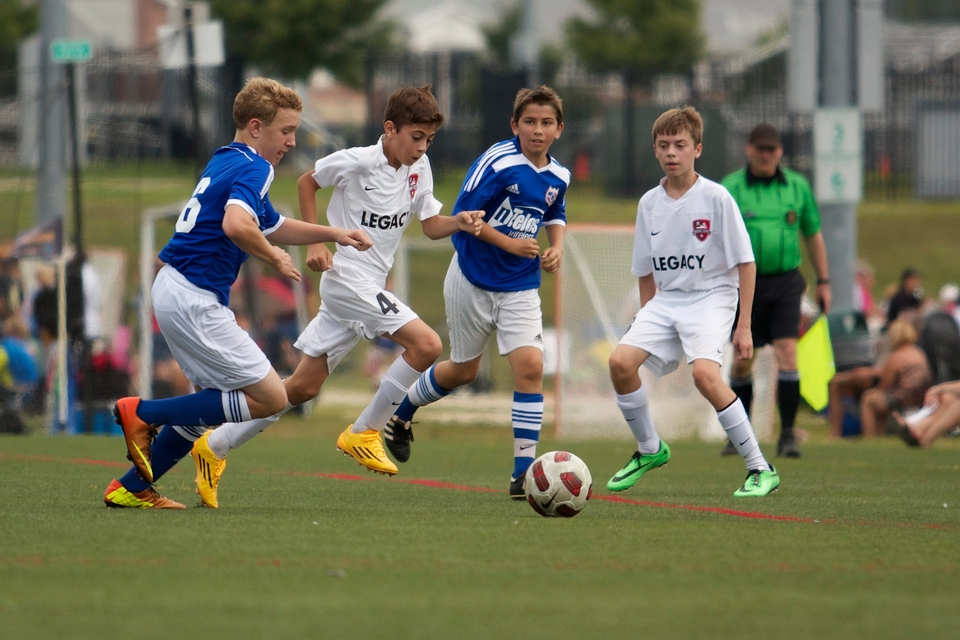
Technology is playing an increasingly important role in grassroots football. From wearable devices to coaching apps and video analysis software, the latest technology trends and brands are revolutionizing grassroots football in exciting new ways.
One of the key benefits of technology in grassroots football is the ability to track player performance and progress. Wearable devices such as GPS trackers and heart rate monitors can provide coaches with valuable insights into player fitness levels, helping them to tailor training programs to individual needs and identify areas for improvement.
Coaching apps and video analysis software can also be incredibly useful tools for grassroots football coaches. These apps and software allow coaches to create detailed training plans, track player progress, and analyse game footage to identify strengths and weaknesses. This can be particularly beneficial for younger players, who may not have the same level of experience or knowledge as their older counterparts.
Another area where technology is making a big impact in grassroots football is in fan engagement. Social media platforms such as Twitter and Facebook are now being used by grassroots football clubs to engage with fans and promote their teams. This can help to build a sense of community and increase support for grassroots football at all levels.
Overall, technology is playing an increasingly important role in grassroots football, helping to improve player performance, enhance coaching capabilities, and increase fan engagement. As technology continues to evolve, it is likely that we will see even more exciting developments in the world of grassroots football in the years to come.
Grassroots Football and Inclusivity
Grassroots football is a form of football that is played at a non-professional level, often at a local or community level. It is a form of football that is accessible to all, regardless of age, gender, ability, or background. Inclusivity is a key aspect of grassroots football, and it is important that everyone who wants to play football has the opportunity to do so.
Gender Equality
Gender equality is an important aspect of inclusivity in grassroots football. It is important that both men and women have the opportunity to play football and that they are treated equally. The Football Association (FA) has made significant progress in recent years in promoting gender equality in football. The FA has set targets to increase the number of women and girls playing football and has launched initiatives to support the development of women's football.
Accessibility for Disabled Players
Grassroots football should be accessible to all, including disabled players. It is important that facilities are accessible and that the necessary support is provided to enable disabled players to participate in football. The FA has launched initiatives to improve accessibility for disabled players, including the development of disability football hubs and the provision of equipment and training for coaches and volunteers.
In conclusion, inclusivity is a key aspect of grassroots football, and it is important that everyone who wants to play football has the opportunity to do so. Gender equality and accessibility for disabled players are important aspects of inclusivity in grassroots football, and the FA has launched initiatives to promote both.
Frequently Asked Questions
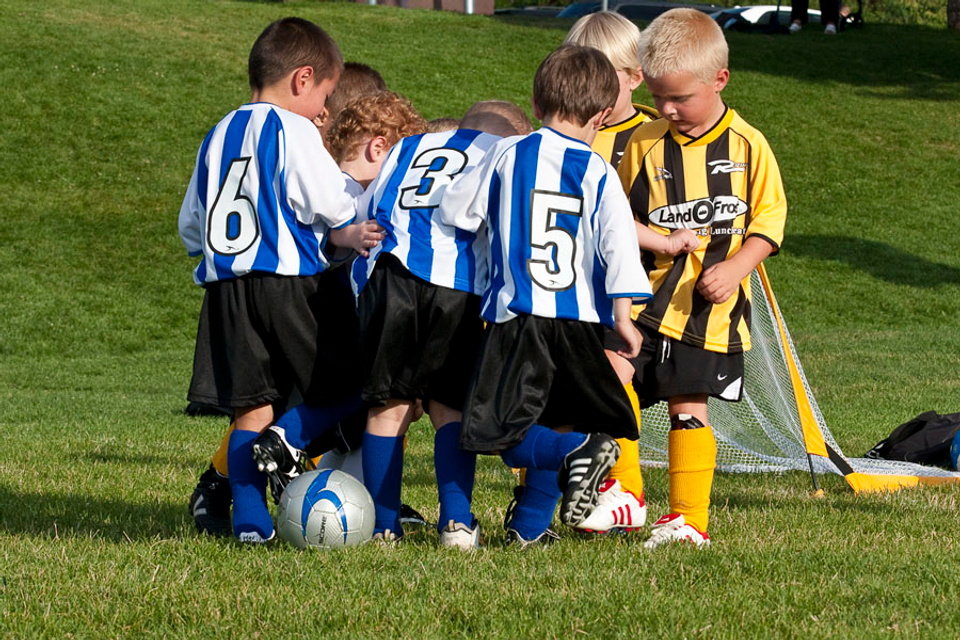
What are the basic rules governing grassroots football?
Grassroots football is governed by the same set of rules as professional football. The Laws of the Game are set by the International Football Association Board (IFAB) and are enforced by the Football Association (FA) in England. However, there are some modifications made in order to suit the needs of younger players.
At what age can children start participating in grassroots football?
Children can start participating in grassroots football from as young as five years old. The FA runs a programme called Mini Soccer, which is designed for children aged between five and eleven. The programme is aimed at introducing young children to the game in a fun and safe environment.
How does grassroots football contribute to the development of players?
Grassroots football plays a vital role in the development of players. It provides them with the opportunity to develop their skills and improve their fitness in a supportive and competitive environment. It also helps them to develop important life skills such as teamwork, communication and leadership.
What is the significance of grassroots football within England?
Grassroots football is the lifeblood of football in England. It provides the foundation for the professional game and helps to identify and develop future talent. It also plays an important role in bringing communities together and promoting social inclusion.
What constitutes a grassroots football club?
A grassroots football club is a community-based organisation that provides opportunities for people of all ages and abilities to participate in football. It is typically run by volunteers and is focused on providing a safe and enjoyable environment for players to develop their skills.
How does grassroots football impact the wider sporting community?
Grassroots football has a significant impact on the wider sporting community. It helps to promote physical activity and healthy lifestyles, and provides opportunities for people from all backgrounds to come together and share a common interest. It also helps to develop social skills and promotes community cohesion.


